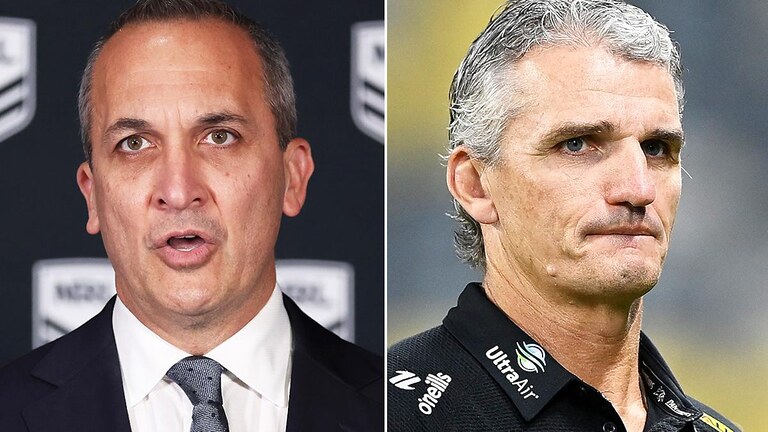
LeagueNews.co | Cooper McEnroe
NRL boss Andrew Abdo addressed concerns raised by Penrith Panthers coach Ivan Cleary regarding a recent decision by the Australian Rugby League Commission (ARLC) to empower itself to charge players.
Cleary's complaint centered on the ARLC's new authority to intervene in cases where the match review committee (MRC) has not taken action or deemed punishments insufficient.
Following the Panthers' win over the Warriors, Cleary expressed his concerns, labeling the ARLC's decision as "disturbing." He said, "I would suggest the danger there is that the Commission is not showing a lot of confidence in the MRC.
I don't know if that's the actual reason, but you can assume that, which is a little disturbing.
I think that's probably the main issue - do we have confidence in the MRC? And if we don't, then we probably should fix that up, rather than trying to maybe come up with a, 'We'll step in if we don't think it's right.'"
Cleary cited the example of Scott Sorensen, who received a two-game ban for a hip-drop tackle on Dallin Watene-Zelezniak that was not initially penalized during the game.
This incident further fueled Cleary's frustration regarding perceived inconsistencies in how disciplinary actions are handled in the league.
Clint Newton, the head of the Rugby League Players Association, echoed Cleary's sentiments, describing the ARLC's move as an "unprecedented over-reach." Abdo responded to the backlash by clarifying the rationale behind the new rule.
He stated that the ARLC's decision was intended as an "insurance policy" for the league, asserting: "All it really means is that the Commission is able to, on very rare circumstances if ever, apply to the judiciary to review a matter that may have been missed by the match review committee, or may have, in their view, not been graded appropriately."
This exchange highlights ongoing tensions regarding player disciplinary processes in the NRL and raises questions about the level of trust in the MRC's decision-making capabilities.
